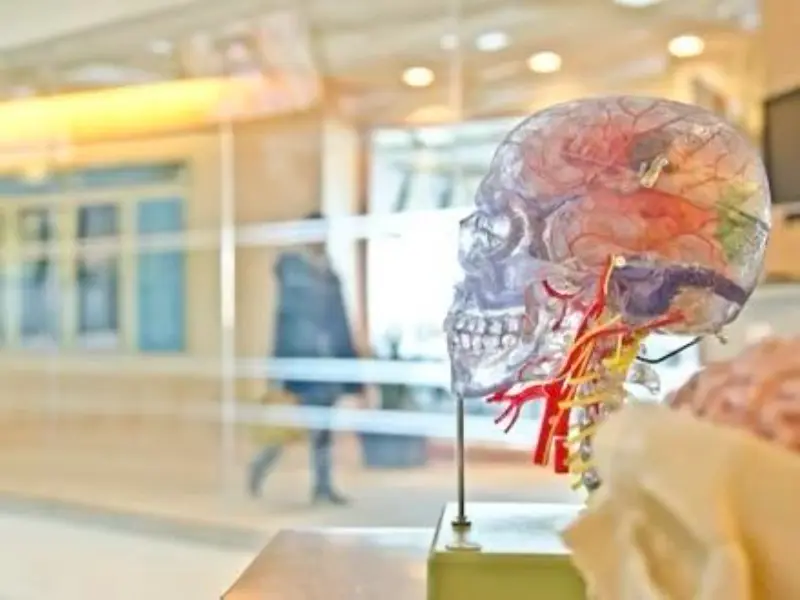- Robotics technology ensures high accuracy and precision in healthcare manufacturing processes, leading to the production of reliable medical devices and equipment.
- Robotics allows for the customisation of medical devices based on individual patient needs, leading to personalised implants, prosthetics, and surgical instruments.
- Robotics enables the customisation of medical devices to meet individual patient needs, resulting in personalised implants, prosthetics, and surgical instruments.
Robots in healthcare are primarily used to support and enhance the delivery of medical procedures, care, rehabilitation, and assistance to people with disabilities. Patients’ and medical professionals’ quality of life eventually improves as a result. Robotics’ future will be determined by how medical robots are integrated with technologies like bioprinting, IoT, and artificial intelligence.
Precision and accuracy
Robotics technology has revolutionised precision manufacturing in the healthcare sector by enabling machines to perform highly accurate and intricate tasks. This precision is crucial in the production of medical devices, implants, and equipment that require exact specifications to ensure optimal performance and patient safety. Robotic systems equipped with advanced sensors, actuators, and control algorithms can execute tasks with micron-level precision, surpassing the capabilities of human operators in terms of accuracy and repeatability.
Automation of manufacturing processes
Automation is a key benefit of robotics in healthcare manufacturing, as robots can automate repetitive and labour-intensive tasks that are prone to human error. By automating processes such as assembly, packaging, and quality control, robots enhance efficiency, reduce production costs, and improve overall productivity. Automated manufacturing lines equipped with robotic arms, conveyors, and vision systems can operate 24/7, increasing throughput and ensuring consistent product quality.
Also read: What is an industrial robot?
Customisation and personalisation
One of the most significant impacts of robotics in healthcare manufacturing is the ability to customise and personalise medical devices and equipment for individual patients. Robotic systems can fabricate patient-specific implants, prosthetics, and surgical instruments based on medical imaging data and patient anatomy. Personalised medical devices improve treatment outcomes, reduce the risk of complications, and enhance patient comfort and satisfaction.
Quality assurance and compliance
Robotics plays a crucial role in ensuring quality assurance and regulatory compliance in healthcare manufacturing. Robots equipped with sensors, cameras, and AI algorithms can perform real-time quality inspections, detecting defects, deviations, and anomalies in products. Automated quality control processes minimise the risk of non-compliance with industry regulations and standards, ensuring that medical devices meet stringent safety and performance requirements before they reach patients.
Innovative medical device development
Robotics technology accelerates the development and commercialization of innovative medical devices that improve diagnosis, treatment, and patient care. Robotic systems enable rapid prototyping, testing, and iteration of new medical technologies, reducing time-to-market and fostering innovation in the healthcare industry. Collaborations between robotics engineers, medical professionals, and researchers lead to the creation of medical devices such as robotic-assisted surgical systems, implantable sensors, and wearable health technologies that enhance patient outcomes and quality of life.
Surgical robotics and minimally invasive procedures
Robotic-assisted surgical systems have transformed the field of surgery by providing surgeons with enhanced precision, dexterity, and visualisation during complex procedures. Surgical robots enable minimally invasive techniques that result in smaller incisions, reduced blood loss, faster recovery times, and improved patient outcomes. The integration of robotics in surgery expands the capabilities of healthcare providers, allowing for more complex and delicate procedures to be performed with greater accuracy and safety.
Supply chain management and logistics
Robotics technology is employed in healthcare manufacturing to optimise supply chain management, inventory control, and logistics operations. Autonomous mobile robots (AMRs) are used in warehouses and distribution centres to automate material handling, inventory tracking, and order fulfilment processes. AMRs navigate warehouse environments autonomously, transporting medical supplies, equipment, and components to designated locations, reducing manual labour, minimising errors, and improving operational efficiency.

